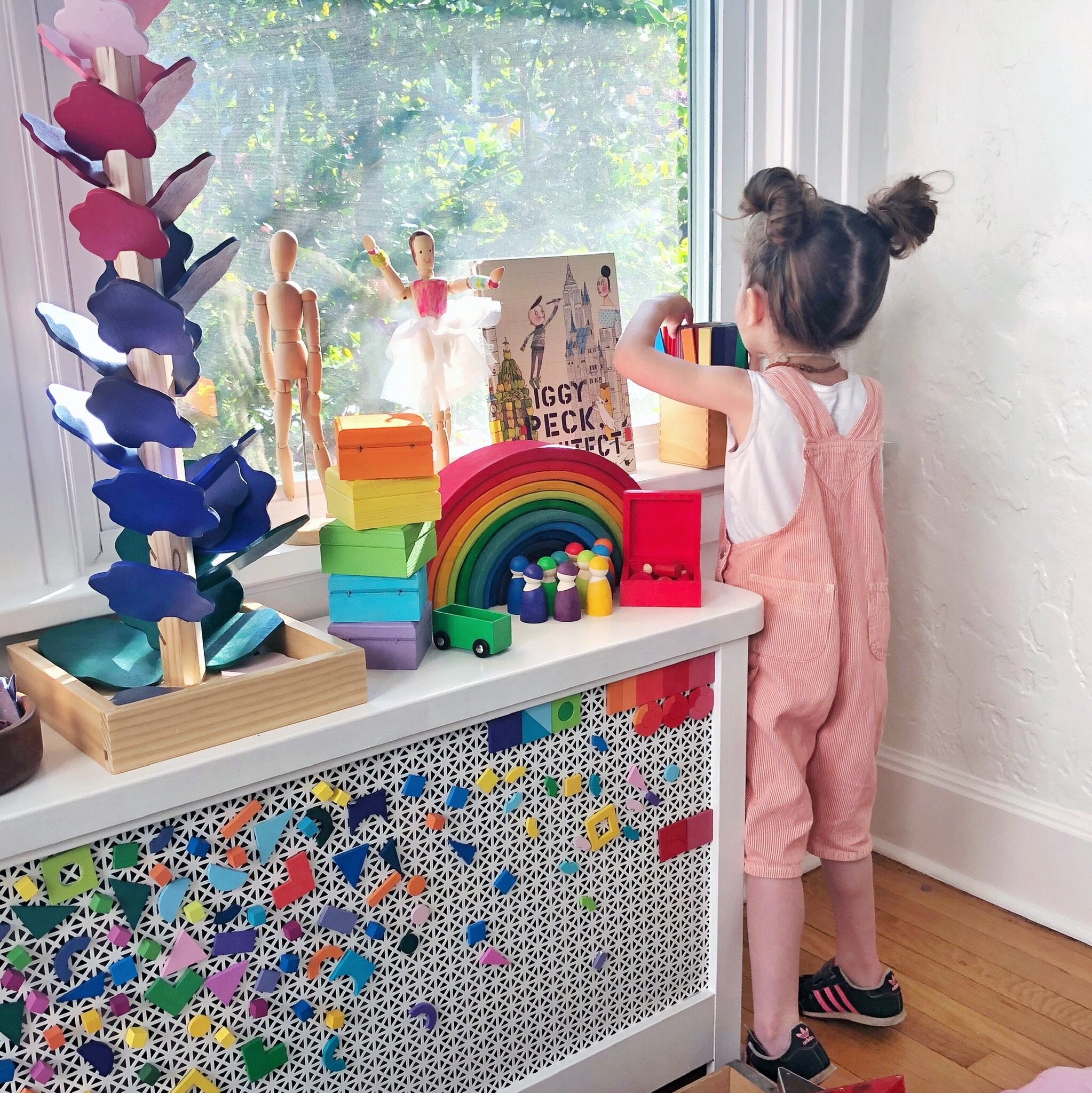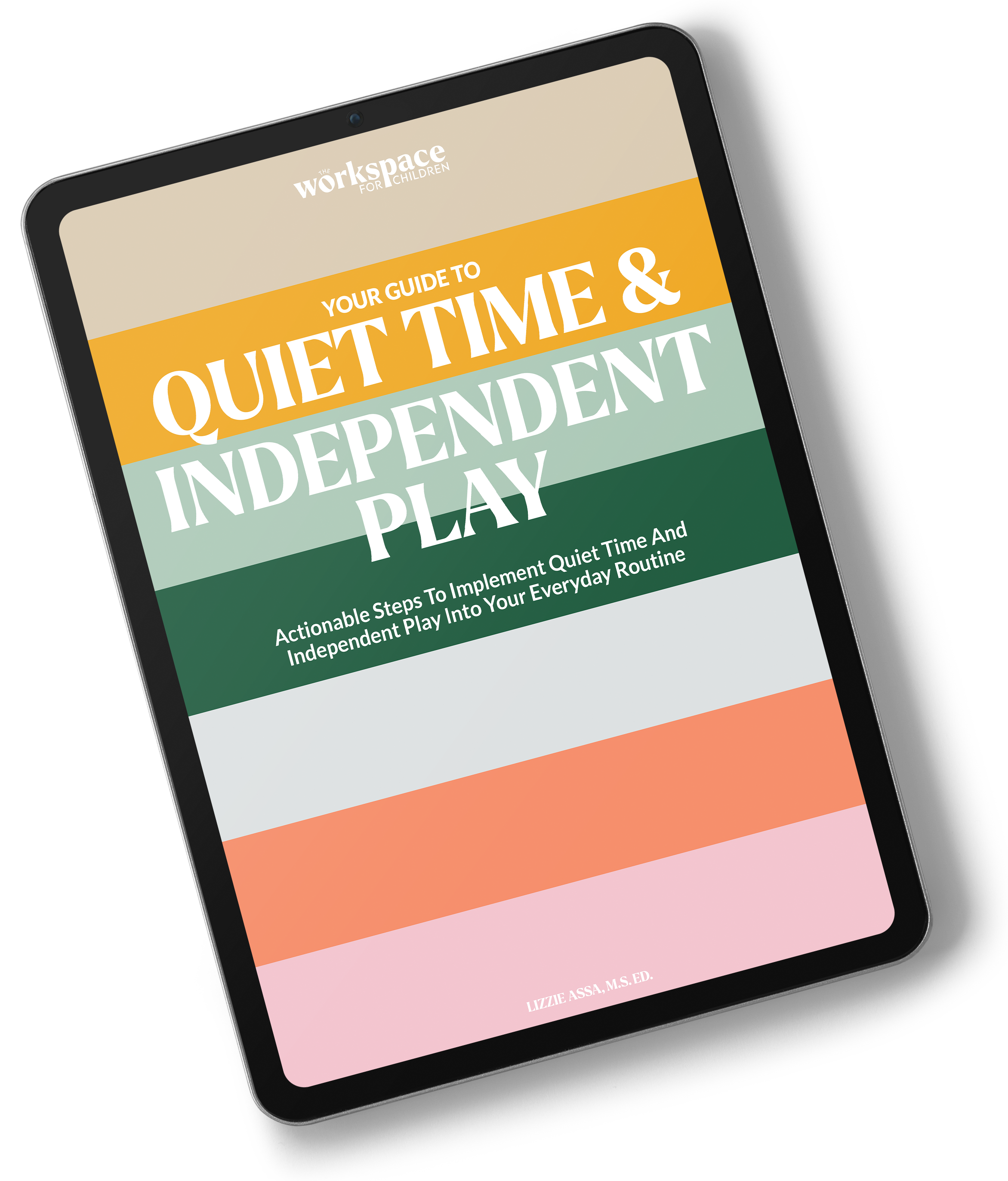How to Cultivate Daily Independent Play
/Do you have a child that needs to be constantly entertained? Do you feel like you can’t get anything done because you’re always being pulled by your child to “come play”?
Or maybe you feel like you’ve resorted to more screen time than you’d like because it’s the only way you can get two minutes of peace and quiet.
If this sounds like you, I see you. You are not alone. But, it doesn’t have to be this way.
Now, imagine this: It’s midday and you’ve just had lunch with your little one. You announce that it’s quiet time and off they go to play independently (without a fuss, no screens included!) while you recharge and get some things down around the house.
Sound too good to be true? It’s not.
Did you know that you can actually TEACH your child the SKILL of independent play? That you can use screen time as the valuable tool that it is rather than a default? That you can be both a “screen” family and a “play” family? (Learn more about using screen time as a tool HERE.)
It’s true. You can offer screen time when you want to offer it, AND you can have a child who is great at independent play. You can have BOTH. Here’s how.
6 Ways to Nurture Independent Play
1. Start small.
If your child is used to you playing with them throughout the day, start with a small increment of time. Maybe it’s 5 minutes the first day. Let them lead with the amount of time they are comfortable with. They may even surprise you and play independently for longer than you expect!
2. Understand WHY play matters for your child.
There are a lot of benefits to play. Play regulates emotions, allows for creativity, builds independence, etc. Pay attention to what it does for your unique child. If your child is having a rough day, does play helps them to relax and regroup? Is there a specific time in the day that they would benefit from it most?
3. Create daily time to practice.
If your child doesn’t nap anymore, quiet time will be your new best friend. Pick a certain time (make it part of your routine) during the day that your child can enjoy a quiet activity on their own. Practice doing this every day - remember to start small if you need to!
4. Allow for boredom.
As parents, it’s easy to feel like we need to be entertaining our kids 24/7, and we often forget that it’s okay for them to be bored. Allow for this boredom!
5. Study your child’s interests and preferences.
Paying attention to what your child enjoys can help them play independently. I’ve shared this tip on my Instagram before, but pick a toy that you know they love and set it up somewhere unexpected. Maybe their favorite dollhouse in the kitchen, or their favorite toy dinosaur on the stairs. Let them find it on their own time, and watch the magic happen.
6. Trust your child.
Do you feel comfortable trusting your child that they can play on their own? This is more about YOU than it is them. Your ability to get comfortable with them being bored. Your ability to carve out the time each day for play. Your ability to set limits YOU are comfortable with, and being comfortable following through.
If you are just starting the journey to learning independent play, remember that some children might be more prone to play on their own, and some children might not. Regardless of their temperament, ALL children can learn how to play independently.
Want to learn more? Check out my ebook, your guide to Quiet Time and Independent Play!
I hope you enjoy this blog! ! If you want to keep up with more Workspace for Children content, follow along on Instagram by clickingHERE.
SUBSCRIBE TO MY NEWSLETTER
WANT TO SEE MORE BLOGS LIKE THIS ONE? GREAT! CHECK OUT THE POSTS BELOW!
CHECK OUT OUR EBOOKS!
QUIET TIME AND INDEPENDENT PLAY EBOOK
This downloadable ebook is your personal guide to Quiet Time and Independent Play. This ebook will teach you the basic steps to implementing a Quiet Time and Independent Play strategy that works. The guide teaches you my proven 5 step method for implementing a daily break without using screens. (Guide includes 5 bonus invitations to play.)
$27
THE PLAY PLAN
The Play Plan is an ebook containing play invitations that are easy to set up, inexpensive, and apply children of all ages. The 25 play prompts are divided into five categories and use items that you most likely already have at home. These play prompts consider children of all ages, all developmental stages, and all learning capabilities. Each prompt can be tailored to fit your unique child’s needs. Play is meant to be simple.
$28
















When your child complains of boredom, it's not a lack of ideas, but rather a need for skills, resources, confidence, and clear play boundaries. Try these tips!